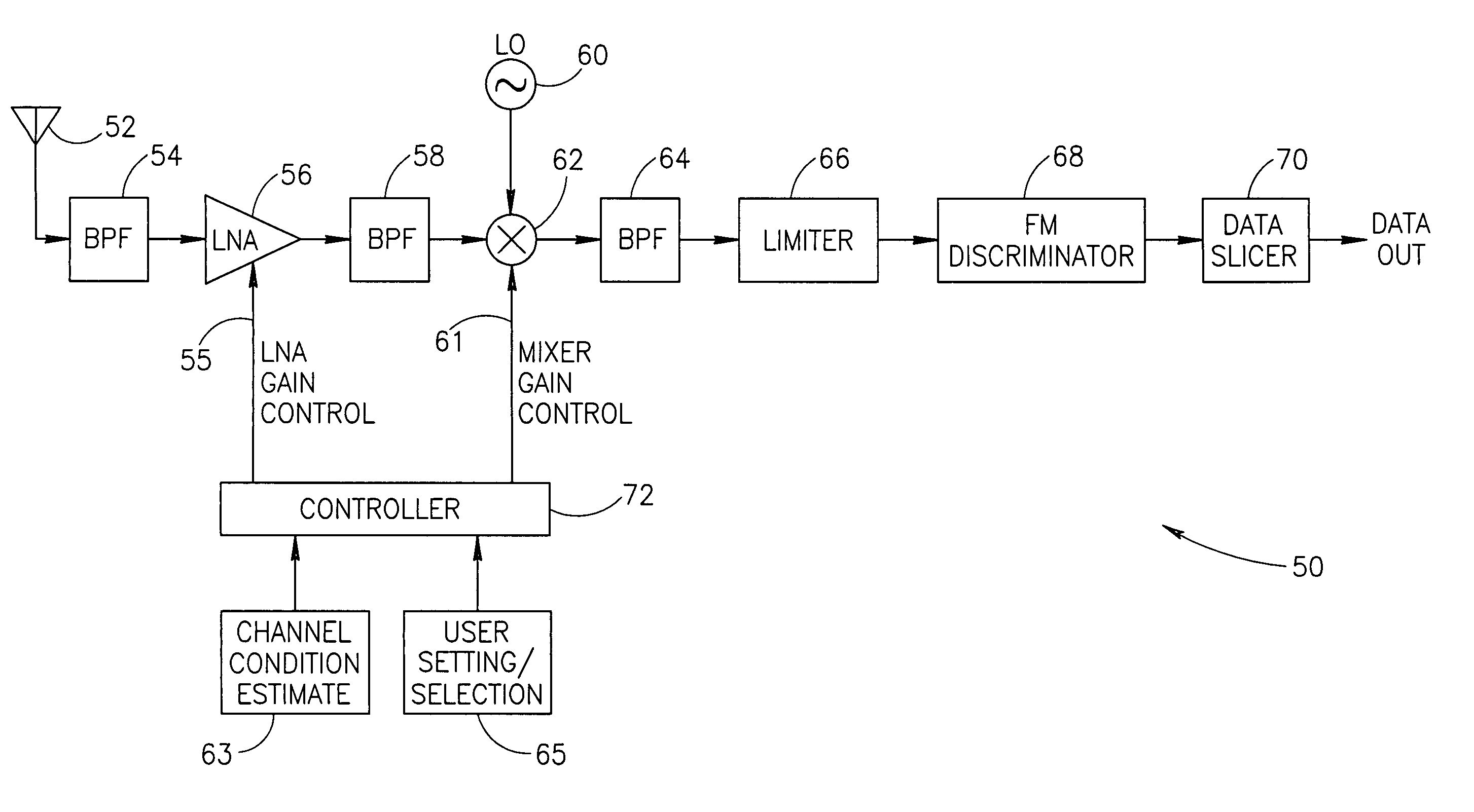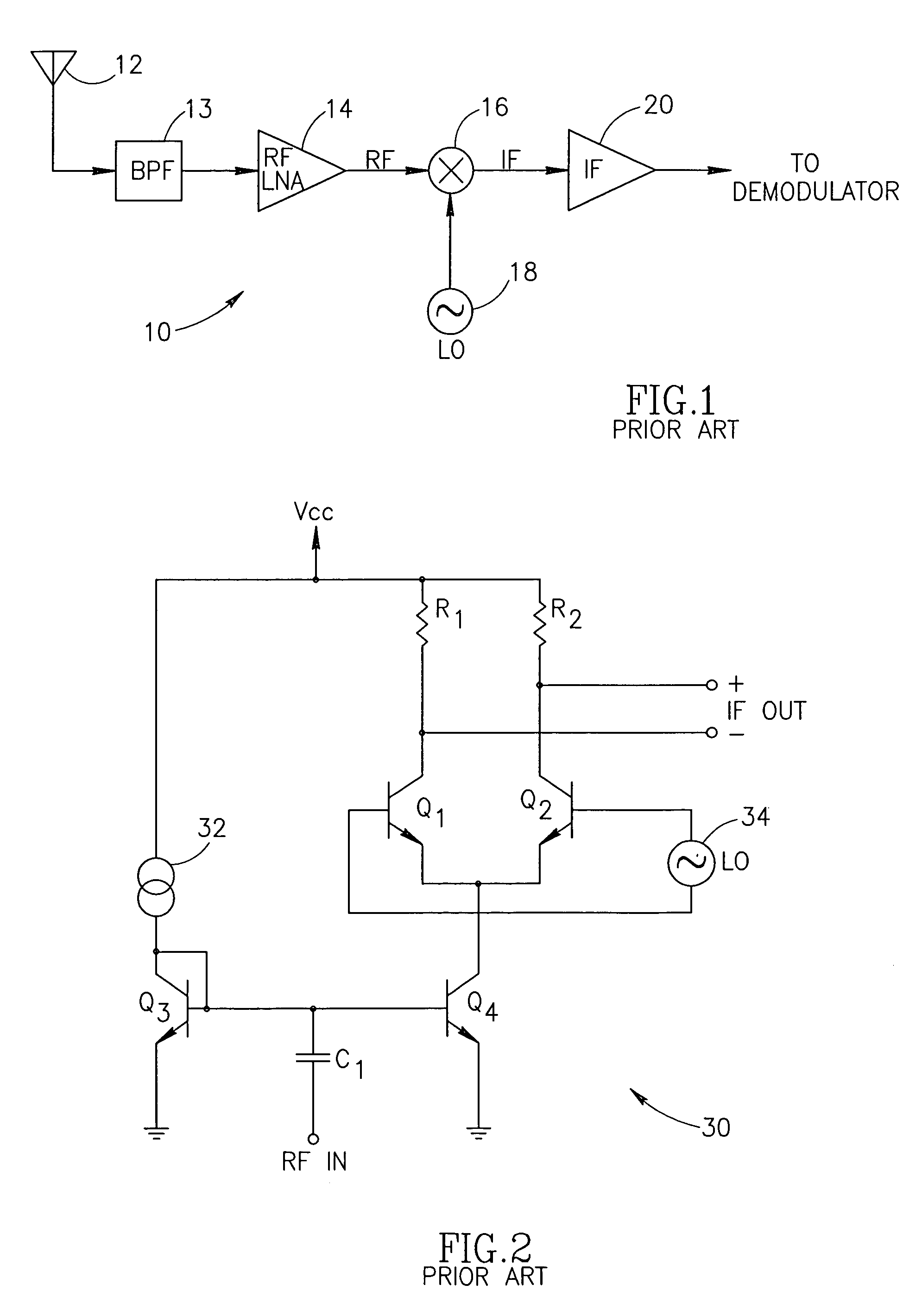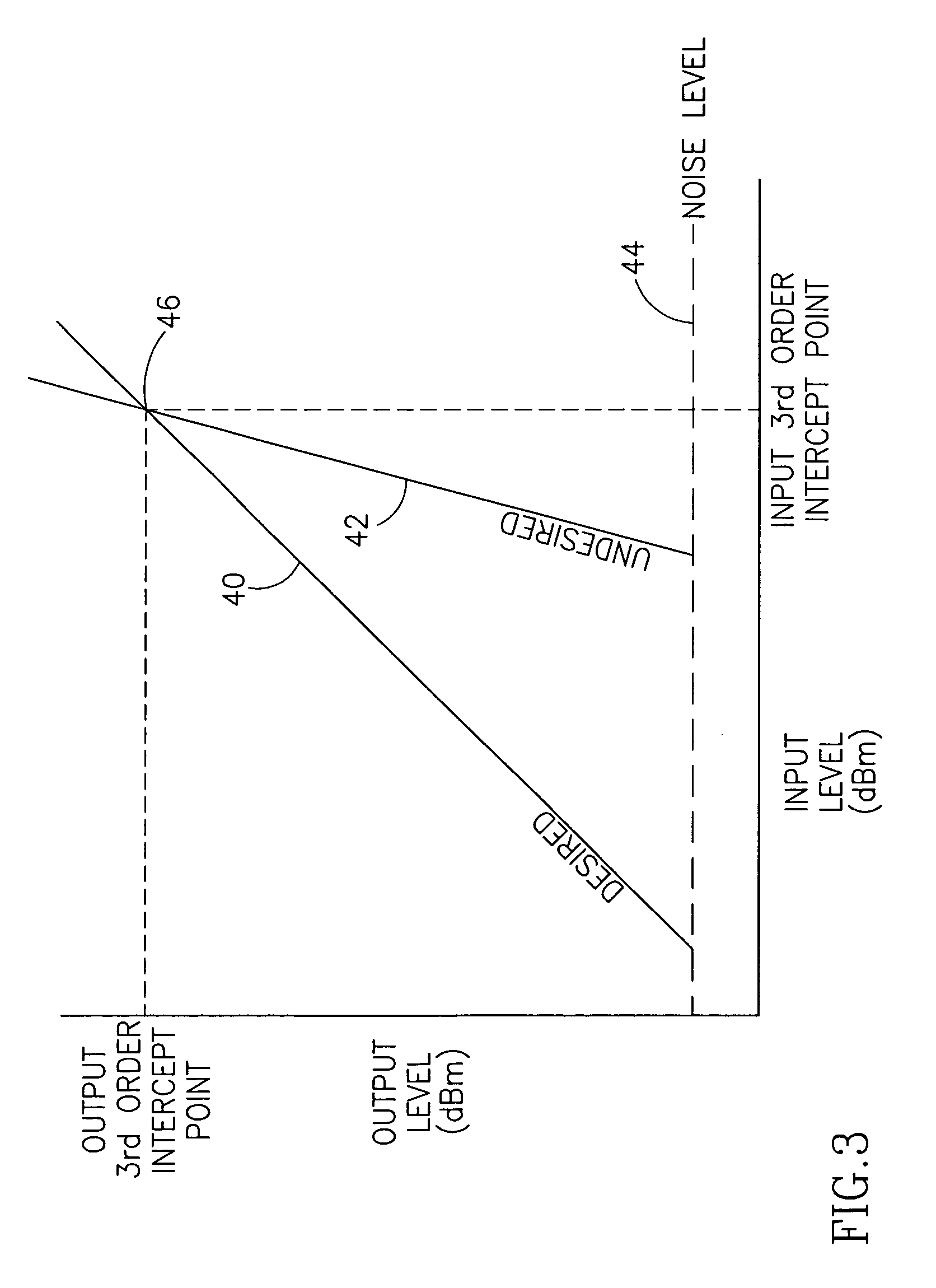Apparatus for and method of optimizing the performance of a radio frequency receiver in the presence of interference
a radio frequency receiver and interference signal technology, applied in the field of communication receiver circuits, can solve the problems of increased frequency generation, increased noise figure (nf), and undesired intermodulation products
- Summary
- Abstract
- Description
- Claims
- Application Information
AI Technical Summary
Benefits of technology
Problems solved by technology
Method used
Image
Examples
Embodiment Construction
Notation Used Throughout
[0046]The following notation is used throughout this document.
[0047]
TermDefinitionBERBit Error RateBPFBand Pass FilterCMOSComplementary Metal Oxide SemiconductorFETField Effect TransistorFMFrequency ModulationFSKFrequency Shift KeyingHEMTHigh Electron Mobility TransistorICIntegrated CircuitIFIntermediate FrequencyIP33rd Order Intercept PointISMIndustrial Scientific MedialLNALow Noise AmplifierLOLocal OscillatorMESFETMetal Semiconductor Field Effect TransistorNFNoise FigureNMOSN-Type Metal Oxide SemiconductorPHEMTPseudomorphic Hetero Junction Field Effect TransistorPLLPhase Lock LoopRFRadio FrequencyRSSIReceived Signal Strength IndicationSCOSynchronous Connection Oriented linkVCOVoltage Controlled Oscillator
DESCRIPTION OF THE INVENTION
[0048]The present invention comprises an apparatus for and method of extending the dynamic range of a RF communications receiver. The invention functions to provide a control mechanism for controlling the gain of both the LNA and...
PUM
 Login to View More
Login to View More Abstract
Description
Claims
Application Information
 Login to View More
Login to View More - R&D
- Intellectual Property
- Life Sciences
- Materials
- Tech Scout
- Unparalleled Data Quality
- Higher Quality Content
- 60% Fewer Hallucinations
Browse by: Latest US Patents, China's latest patents, Technical Efficacy Thesaurus, Application Domain, Technology Topic, Popular Technical Reports.
© 2025 PatSnap. All rights reserved.Legal|Privacy policy|Modern Slavery Act Transparency Statement|Sitemap|About US| Contact US: help@patsnap.com



